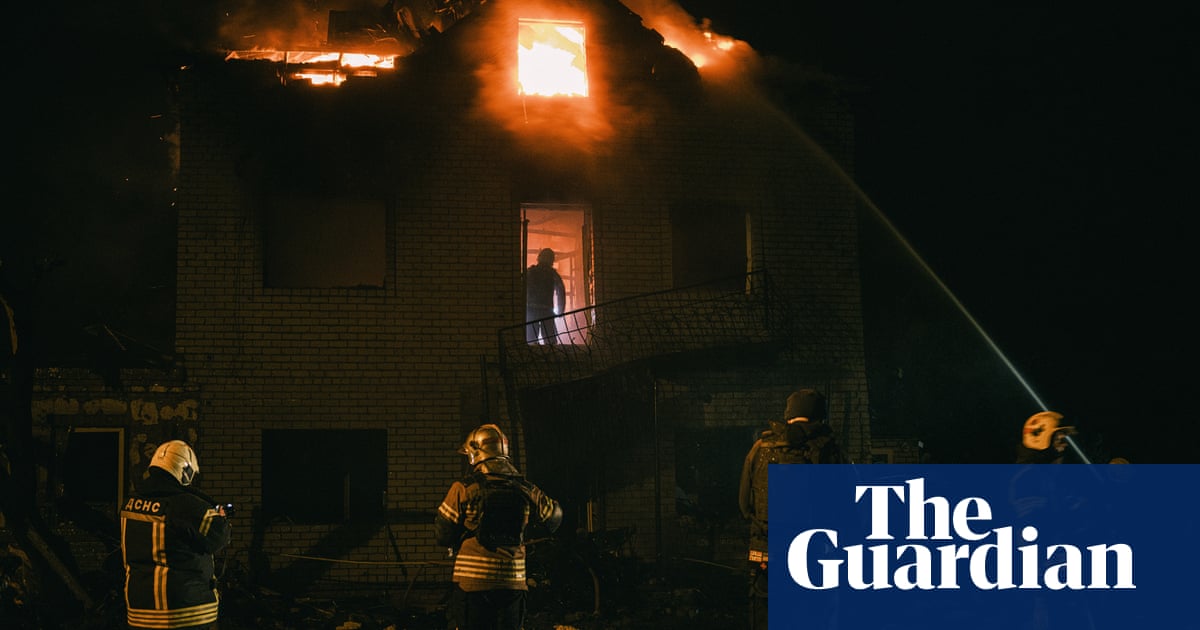Faced with a drastic drop in funding, the United Nations will scale back its humanitarian aid efforts in Ukraine, an official from its humanitarian affairs office said on Tuesday. In January, the UN appealed for $2.63bn in funding to assist 6 million people who need aid in Ukraine. But due to a “sharp contraction” in humanitarian funding, “the UN and its partners … have further reprioritised” operations in Ukraine to reach 4.8 million people with $1.75bn, Joyce Msuya of the Office for the Coordination of Humanitarian Affairs (OCHA) told the UN security council.
“The objective is to reach those most at riskand most in need, centring on four core response priorities: people near the frontline, evacuations, emergency response after strikes, and aid to the most vulnerable among the internally displaced people,” she said. “Without increased support, even the necessary life-saving efforts could be jeopardised.” There are 12.7 million people estimated to be in need of aid in Ukraine.
UN agencies have been announcing reductions in their operations and staffing levels around the worldafter major drops in donor contributions, particularly from the US. President Donald Trump’s administrationhas reduced fundingof its humanitarian agency USAID by 83%. Until now, USAID alone ran an annual budget of $42.8bn, or 42% of all humanitarian aid disbursed worldwide.
The Guardian, working with media partners, has tracked down first-hand accounts to reconstruct the final months ofthe life of Viktoriia Roshchyna, a Ukrainian journalist who died after a year in Russian detention. Roshchyna was captured in the summer of 2023 near the Zaporizhzhia nuclear power station. It was at least her fourth reporting trip into the occupied territories. She was by this stage of the war the only Ukrainian journalist prepared to risk crossing the frontline in order to pierce the information blackout imposed by Russia.
US secretary of state Marco Rubio has warned that the United States would give up on mediation unless Russia and Ukraine put forward “concrete proposals”, as US patience wanes on what had been an early priority for Trump. The US president had vowed to end the war in his first 24 hours in the White House, but as Trump celebrates 100 days in office, Rubio has suggested the administration could soon turn attention to other issues. “We are now at a time where concrete proposals need to be delivered by the two parties on how to end this conflict,” state department spokesperson Tammy Bruce told reporters on Tuesday, in what she said was a message from Rubio. “If there is not progress, we will step back as mediators in this process.”
The Ukrainian president, Volodymyr Zelenskyy, on Tuesday called for a “fair” end to the war with Russia without “rewards” for Vladimir Putin, pushing back against demands for Kyiv to make territorial concessions. “We all want this war to end in a fair way – with no rewards for Putin, especially no land,” Zelenskyy said via videoconference at a summit organised by Poland. The comment comes amid reports the US suggested freezing the frontlines and accepting Russian control of the Crimean peninsula that it seized in 2014, proposals Zelenskyy has rejected.
Trump on Tuesday said he thinks Putin wants to stop Russia’s war in Ukraine, days after saying “maybe he doesn’t want to stop the war”.Trump responded “I think he does” when asked whether he thinks Putin wants to make peace during an interview with ABC News’ Terry Moran. “If it weren’t for me, I think he’d want to take over the whole country,” Trump said. “I will tell you, I was not happy when I saw Putin shooting missiles into a few towns and cities.”
Swarms of Russian drones attacked the Ukrainian cities of Kharkiv and Dnipro late on Tuesday, killing at least one personand injuring at least 38, officials said.The mass attack on Kharkiv, Ukraine’s second-largest city in the north-east and a frequent target of drones and missiles, injured 38 people, regional governor Oleh Syniehubov said, noting that two children were among the injured. Kharkiv Mayor Ihor Terekhov put the number of injured at 39. “There have been 16 strikes on Kharkiv,” Terekhov wrote on the Telegram messaging app. “A high-rise apartment block was hit as were private homes, a medical facility and civil infrastructure.” In Dnipro, in Ukraine’s south-east, drones triggered fires and killed one person, Serhiy Lysak, governor of Dnipropetrovsk region, said on Telegram. “There are a number of fires in the city,” Lysak wrote. “Private homes have been damaged.”
